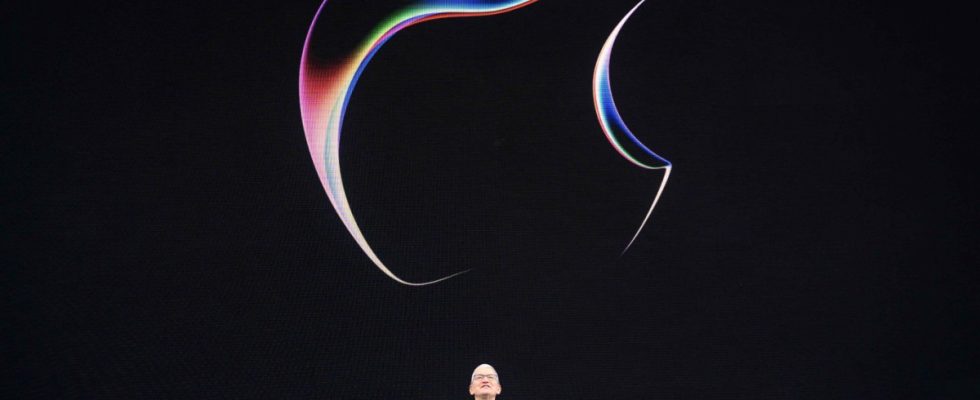Things that changed the world – of course Apple delivered them. More recently, however, it’s not the iPhone company from Cupertino, California that’s making the big headlines. They are companies like Open AI, Microsoft or Meta aka Facebook. They are considered to be at the forefront of the new big thing: artificial intelligence, represented and hyped into the public consciousness after decades of shadowy existence by the amazing capabilities of text and image generators like Chat-GPT or Stable Diffusion. We haven’t heard anything from Apple about this for a long time. Even before the big hype, the group drew criticism because its AI assistance function Siri was no longer state of the art compared to the competition such as Amazon’s Alexa.
A few weeks ago, rumors that this might change in the foreseeable future were enough to push the Apple share price to new heights. What actually happens is, as always, a big secret at Apple. However, it can be considered certain that something like Apple GPT is being worked on. Company boss Tim Cook has now confirmed it again. The fact that Apple is not the first to push ahead with this would also be nothing new. They let the competition blow their horns, learn from their mistakes, and usually bring a more usable (and more expensive) product to market. In fact, research and development spending rose to $22.6 billion year-over-year, a good $3 billion more than the year before.
But until that happens, sales and profits have to come from other business areas. And there is an interesting development. Apple has been working for several years to reduce the hitherto excessive dependence on the sale of devices, especially the iPhone. And this strategy is paying off more and more. In the most recent quarterly report, the group reports license income of 21.2 billion dollars – Apple has never had that high before.
The advantage of owning your own system
Apple is the only provider that has managed to establish its own system on its devices, while everyone else now has to use Android. Even Microsoft failed, despite investing billions in the project. This proprietary system allows Apple to build something that the company’s home country walled garden called, translated freely and somewhat judgmentally: golden cage.
The Apple Watch can only be operated with an iPhone, the Airpods earphones only offer special functions if they are controlled by an Apple device. The iPhones are stingy with storage space, if you want more, you have to pay (much too much) more. Anyone who notices this too late and wants to save data in the cloud will quickly realize that the five gigabytes available in Apple’s iCloud are much too small and are therefore quickly full. So you invest a few euros or dollars more and rent storage space, if only to finally get the obtrusive information about the limited space off the screen.
With its streaming service, the only one that can be used on Apple’s connected speaker Homepod, the group has risen to number two behind market leader Spotify. Everything Apple offers tends to work well together. Whoever sits in the walled little garden has it quite comfortable. All of this isn’t cheap, but Apple’s success proves it right: many people who buy an Apple device obviously have money left over for the services from this company or they are worth it to them.
Once trapped in the golden cage, it is not so easy to get out again, it’s like traveling: package holidaymakers have no worries, those who book everything themselves have more work and usually bear the risk themselves if something doesn’t go so well.

